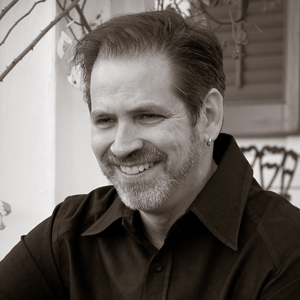It’s clear that there is much to be gained by devoting our full attention to our work. Is there a downside to iron-clad focus? What about the distractions?
I recently saw a documentary on attention, and it made clear that there is almost always too much information coming in to our brains for us to process at any given moment. We choose what we are going to notice or not notice. This is demonstrated by magicians and slight-of-hand artists; they use our inability to notice everything to play tricks. As musicians, we need to be able to “aim” our focus at the right things, and keep it there.
Learning to Ignore
One problem for less-experienced musicians is the constant interruption of focus by external events: phones ringing, background sounds, other people’s conversations. Our first impulse is to try to find a “quiet” place to do our work. While this is comforting, My personal experience is that practicing under such ultra-controlled conditions makes us more sensitive to what’s going on around us. If we practice in a soundproof chamber, we may not be able to handle a noisy nightclub, or even a sneezing concert-goer; not everybody can afford to have “Keith Jarrett” moments where we leave the stage at the slightest noise.
Practicing in a normal environment may be a better answer. I used to practice at low volume on my keyboard between sets at bars; the background music would be on, but I would ignore it and listen to my quiet instrument. People would come up to me and say, “how can you work with all that distraction?” and I would explain that I was ignoring it. In school, the practice rooms had paper walls, but we would all just block out our neighbors. Try leaving a background sound on, like talk radio or TV. This is NOT the same as watching the program while mindlessly noodling; it is helping us ignore the extraneous information. There are “ADHD” classes that do this for students; they gradually add more distractions, helping the kids learn to exclude them.
Our Internal distractions, such as worry, self-consciousness and over-analysis will also respond to this form of exclusion through practice. When thoughts intrude, gently remind yourself to focus on the music, and explore the time-expansion techniques below.
Expanding Time
Almost everyone knows that our sense of time is malleable: when you are in pain or experiencing something extreme, time can crawl. Dental work never seems to go “quickly.” while that lunch break is never long enough. We can control the speed of time by devoting more brain-power to the moment.
- When reading music, try to imagine each measure and note as huge, like a billboard, and immerse yourself in the details of the phrase.
- When improvising, I think of each chord as a song unto itself.
- Choose to think ahead to the next thing coming up; not by ignoring the current thing, but by expanding your range of vision to a wider field. (I know this seems to conflict with the “billboard” concept above, but the brain can do both at once.
- Count at a slower rate: When the tempo is very fast, I often count in cut-time or even in whole-notes. For some reason, the fast counting can give us a false sense of panic when we are more than able to execute the music. Everything just seems to be going by fast. Songs like “Cherokee” or “Impressions” are examples.
Not Just Notes
When we practice, it appears that we are learning music. While this is true, we are also learning a bunch of other things even if we don’t intend to.
- We are practicing our focus and ability to exclude distractions.
- We are learning how to visualize and conceptualize the musical elements. The same music can light up different thoughts; ever notice that “Twinkle Twinkle” and the “ABC” song are the same? If you didn’t, it’s because they were stored in different areas based on the lyrics.
- We are practicing our posture, technique and even appearance at the instrument.
- We are learning to respond to our tone, intonation and rhythmic execution in a way that differs from our response as a listener. This feedback loop allows us to grow and improve. Ever hear yourself recorded without knowing it was you? You heard it very differently.
Once we learn how to get “deep inside” our work, it can telegraph into other areas of our life, occasionally causing us to over-function and over-analyze every situation. This is the classic artistic profile; we bring the sensitivity we so carefully cultivate to all our life. With awareness, we can switch to a more laid-back mode; for me this is part of the life-experience. Now and then, try to just “be.”
Questions:
- How do you learn to exclude the inevitable distractions when you play?
- Do you have methods of “zeroing in”on the music?
- Have you learned unexpected or unwelcome things while practicing?


